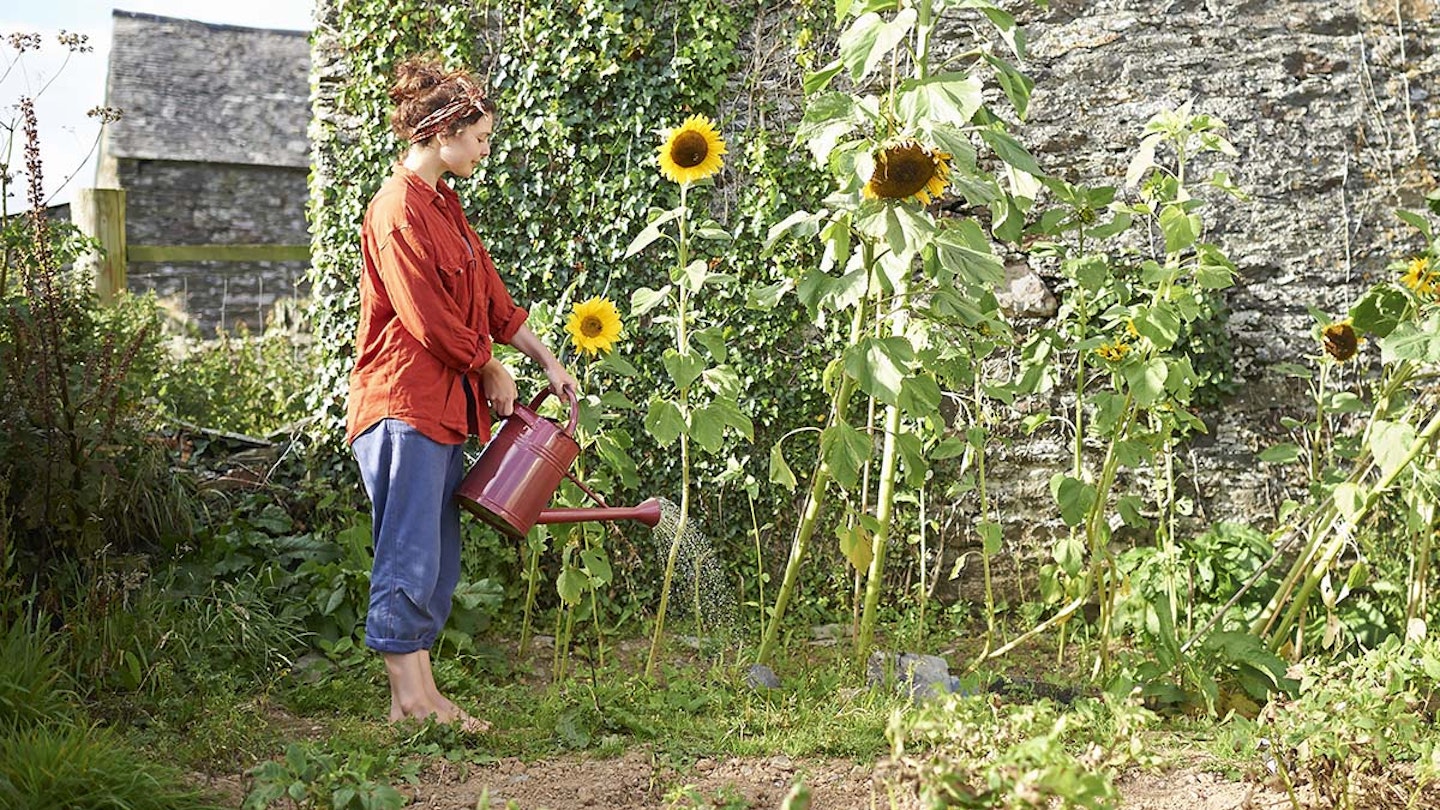For a pop of colour come summer, we recommend planting sunflower seeds in spring time, especially as they are a fun and easy to plant to grow. They will make a lovely addition to your outdoor space,
Growing sunflowers is also brilliant for getting children interested in gardening as they grow fast - you can keep track of their growth by measuring them, see how they follow the sun, or even turn it into a competition for the family.
Best sunflower seeds at a glance:
•Best for easy sewing: Simply Garden Dwarf Sunspot Sunflower Seeds, view offer on Amazon
•Best for flower colour variety: Sunflower Vincent's Mix - Seeds, view offer on Marshalls Garden
•Best for a hardy annual: Suttons Sunflower Seeds - Total Eclipse, view offer on Suttons Flowers
•Best for a budget: Mr Fothergill's Flower Seeds, Sunflower Giant Single, view offer on Amazon
Many types of sunflower have edible petals which look lovely in a salad or as a garnish and you can also harvest the seeds, which contain several vitamins and are a brilliant source of protein! Plus they will look beautiful alongside other summer-flowering bulbs.
As well as the giant sunflowers we all know and love, there are a whole range of other varieties to add colour to your garden, including mixed-colour and darker petals. So, here is our pick of the best sunflower seeds to plant - in all sorts of beautiful shades.
The best sunflower seeds to plant
Best for easy sewing
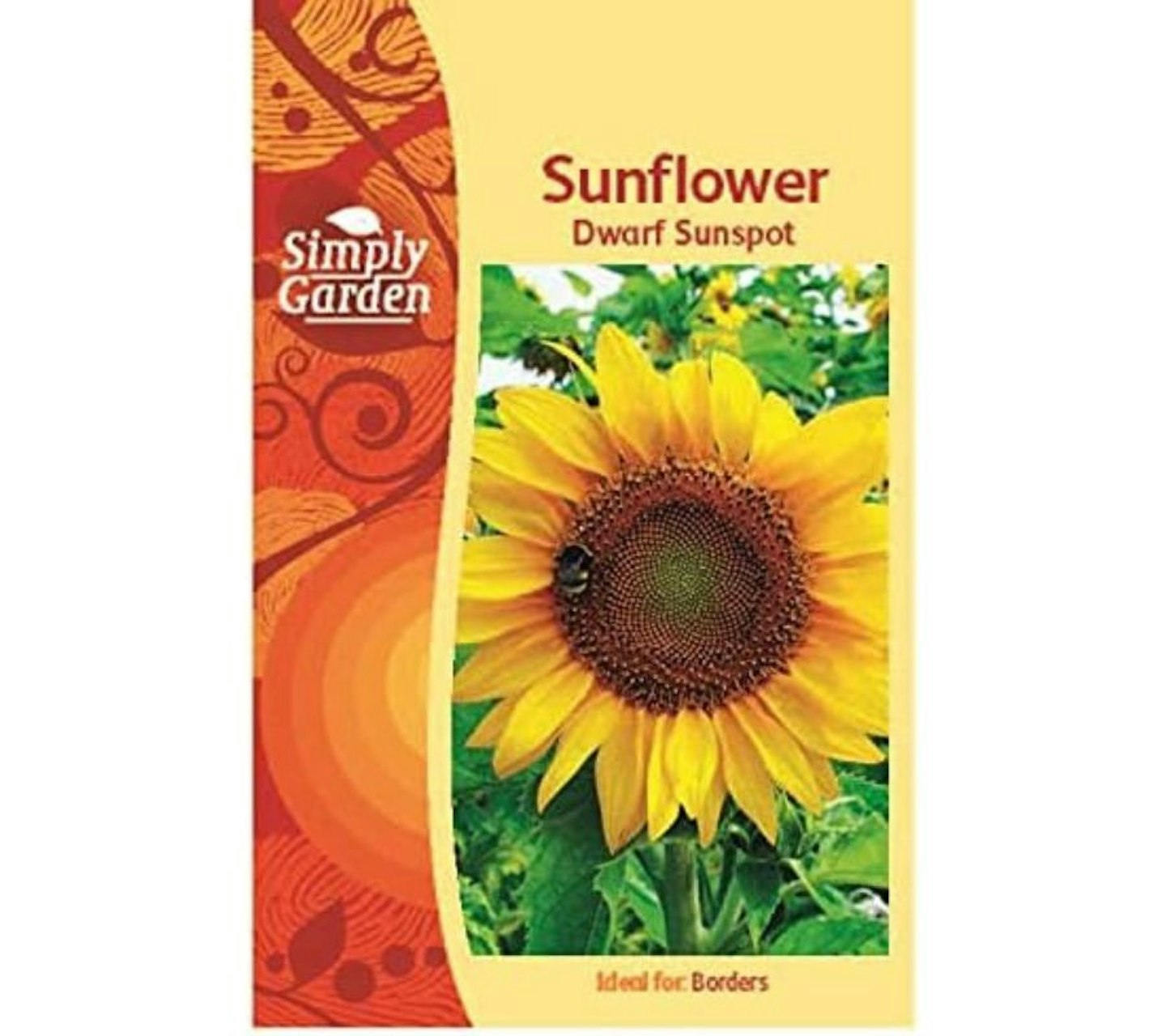 Amazon
AmazonThese Simply Garden Dwarf Sunspot Sunflower Seeds produce single yellow flowers with yellowy-gold centres which can be grown both indoors and outdoors. This variety is a long lasting hardy annual, and as with all sunflowers, it prefers full sun. Several users said that they found the seeds easy to sew and one in particular said that they are "very pleased with the sunflowers so far, currently growing nicely in small pots by a sunny window and looking very healthy".
Pros
- Only needs moderate watering, which saves water and makes the plants ideal for the warmer months
- Can be grown indoors or outdoors, by sewing them into pots first
Cons
- May grow taller than expected (according to one customer), so could end up covering other plants around them
| Sowing period: | March - June |
| Expected bloom time: | Autumn, Summer |
| Number of seeds: | 24 seeds |
Best for flower colour variety
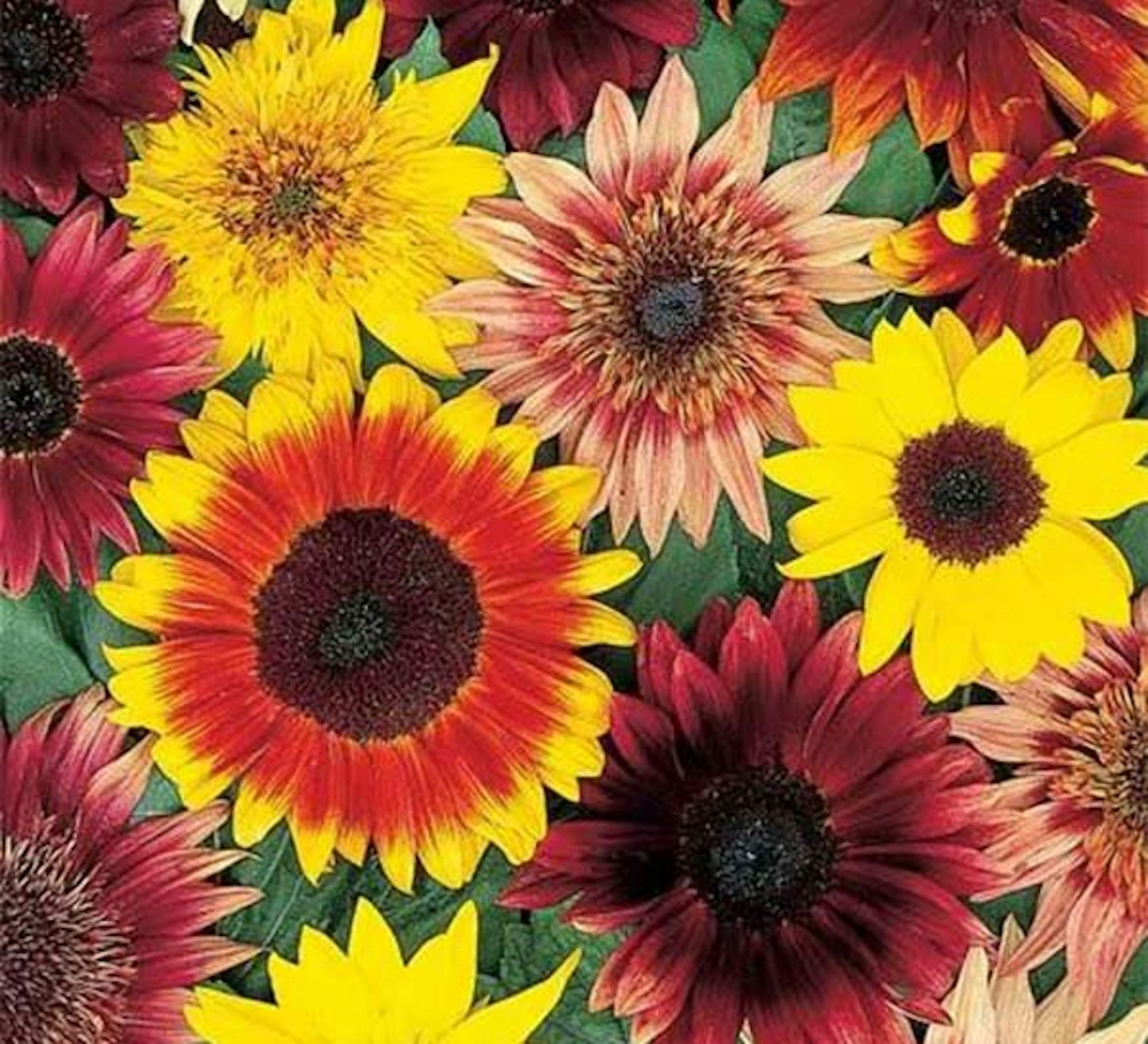 Marshalls Garden
Marshalls Gardenmarshallsgarden.com
With these seeds from Marshalls Garden you can produce a display that's worthy enough of Van Gogh (the artist famed for his paintings of sunflowers). You should receive 20 seeds per pack, and many reviewers have said that most of their seeds have germinated and grown into full-sized plants.
If you are growing them indoors, you can sew them from March to May, but outside the company recommends that you get them ready between April and May.
Pros
- Plants are pollen-free, so they won't stain your clothes or home interiors if cut and brought inside
- Affordable price, especially as you get 20 seeds in a pack
Cons
- One or two users didn't get many flowers out of their pack, but this could be down to their growing conditions
| Sowing period: | March-May |
| Expected bloom time: | July-October |
| Number of seeds: | 20 |
Best for a hardy annual
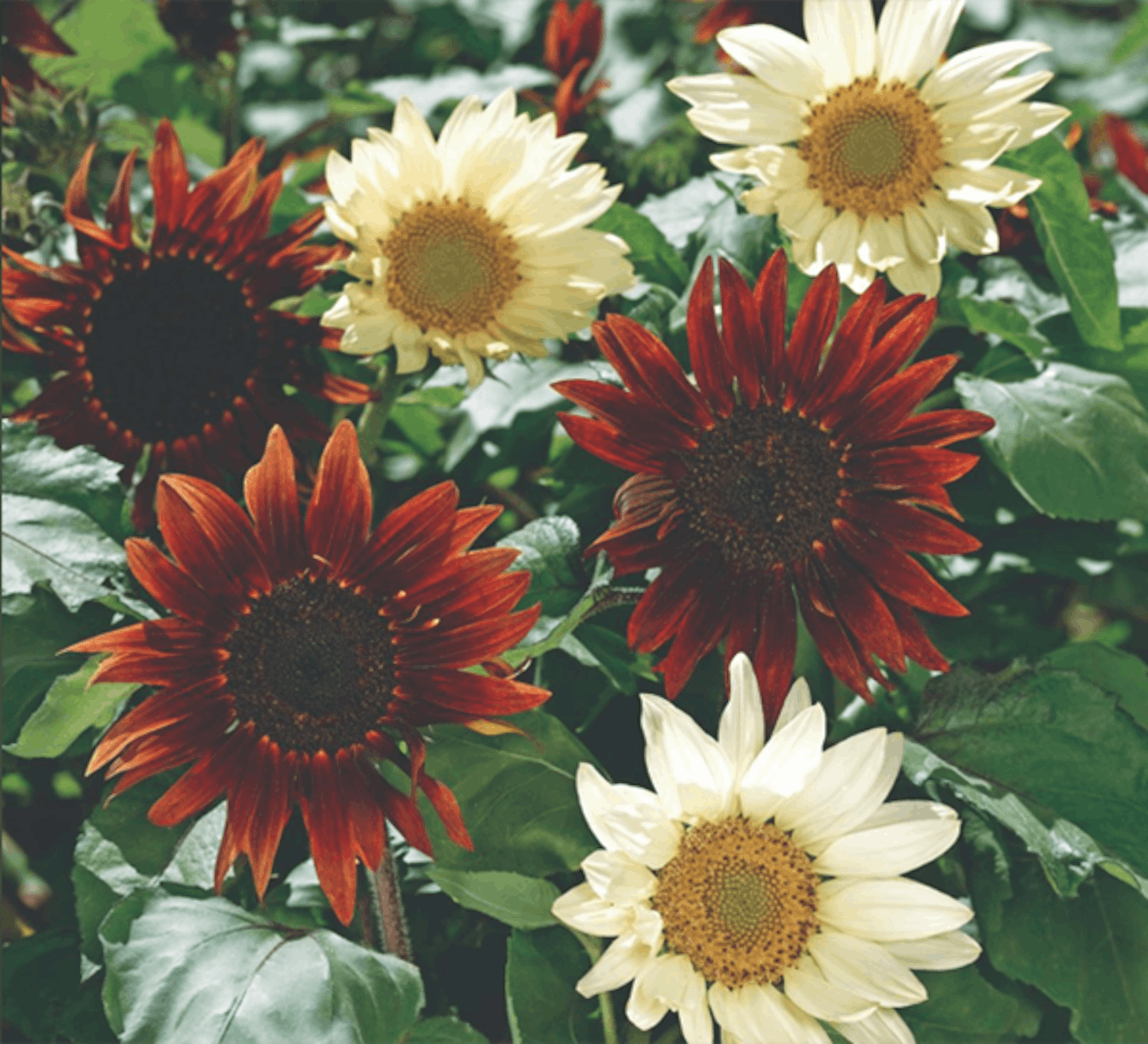 Amazon
Amazonwww.suttons.co.uk
This eye-catching combination of two contrasting varieties (a deep bronze with dark leaves and cream with light leaves) creates a unique blend that will excite avid gardeners and visitors to your garden. Many reviewers have commented on the flowers' appearance, saying things like "They look good. I like the idea of the contrasting varieties".
Size-wise, both varieties will hopefully branch and spread up to 80cm across and reach 50-60cm tall.
Pros
- Fast germination period of 10 to 21 days (if the packet instructions are followed carefully)
- They are a hardy annual, which means they last for a season
Cons
- Soil must be finely raked, which may take time to do
| Expected bloom time: | July-September |
Best for a budget
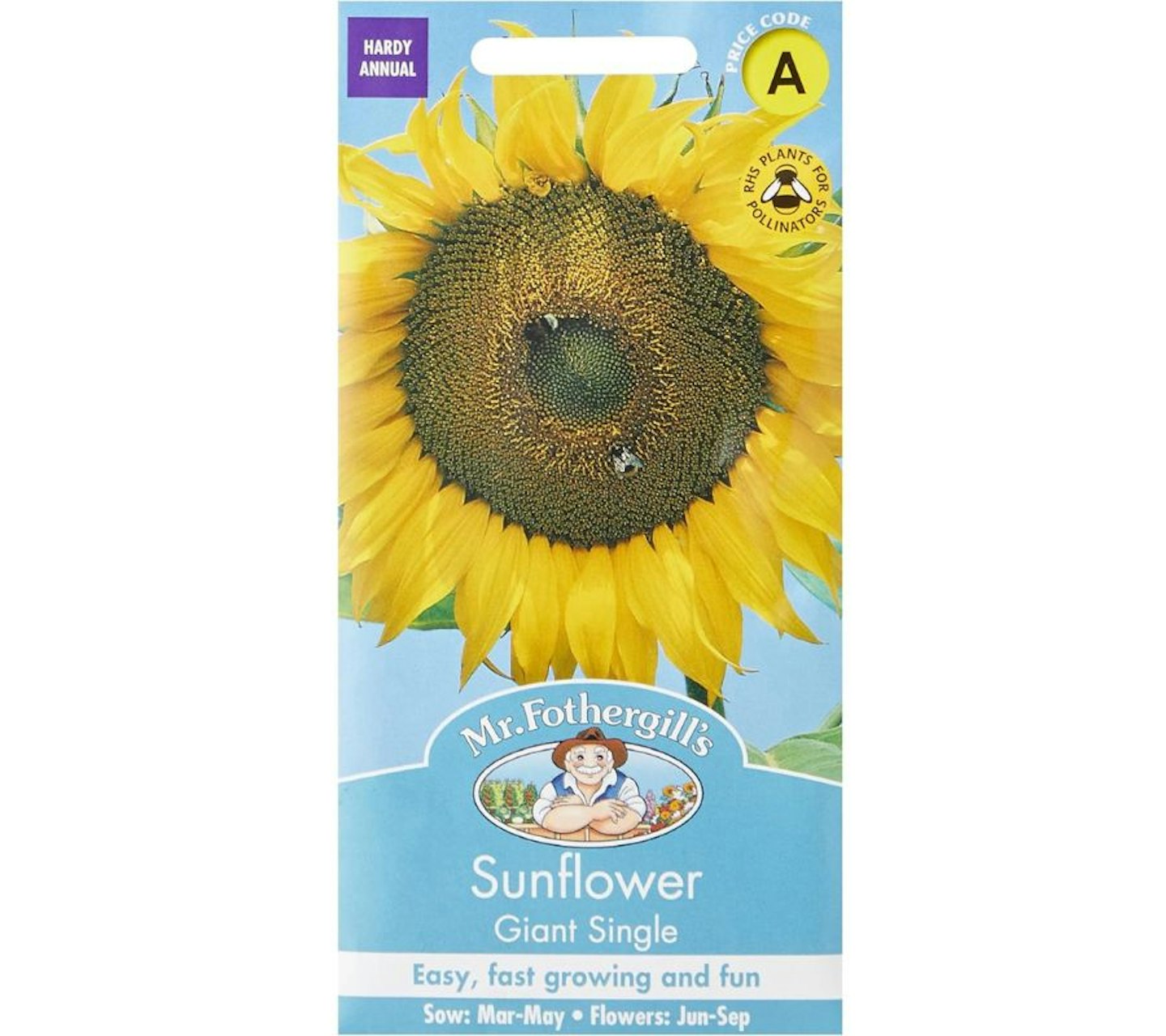 Amazon
AmazonCustomers were impressed with Mr Fothergill's sunflower seeds because they germinate well and produce plants with strong stalks that can with stand wind and hold up heavy flowers. Many of them said that it was their first time growing sunflowers and that they found it easy to do so with a packet of these seeds.
Pros
- The packet has clear instructions which makes the seeds easy to use
- You can harvest the seeds and use them in cooking or baking
Cons
- A few customers said that they got a few broken seeds in their packet
| Sowing period: | March-May |
| Expected bloom time: | June-September |
Best for edible flowers
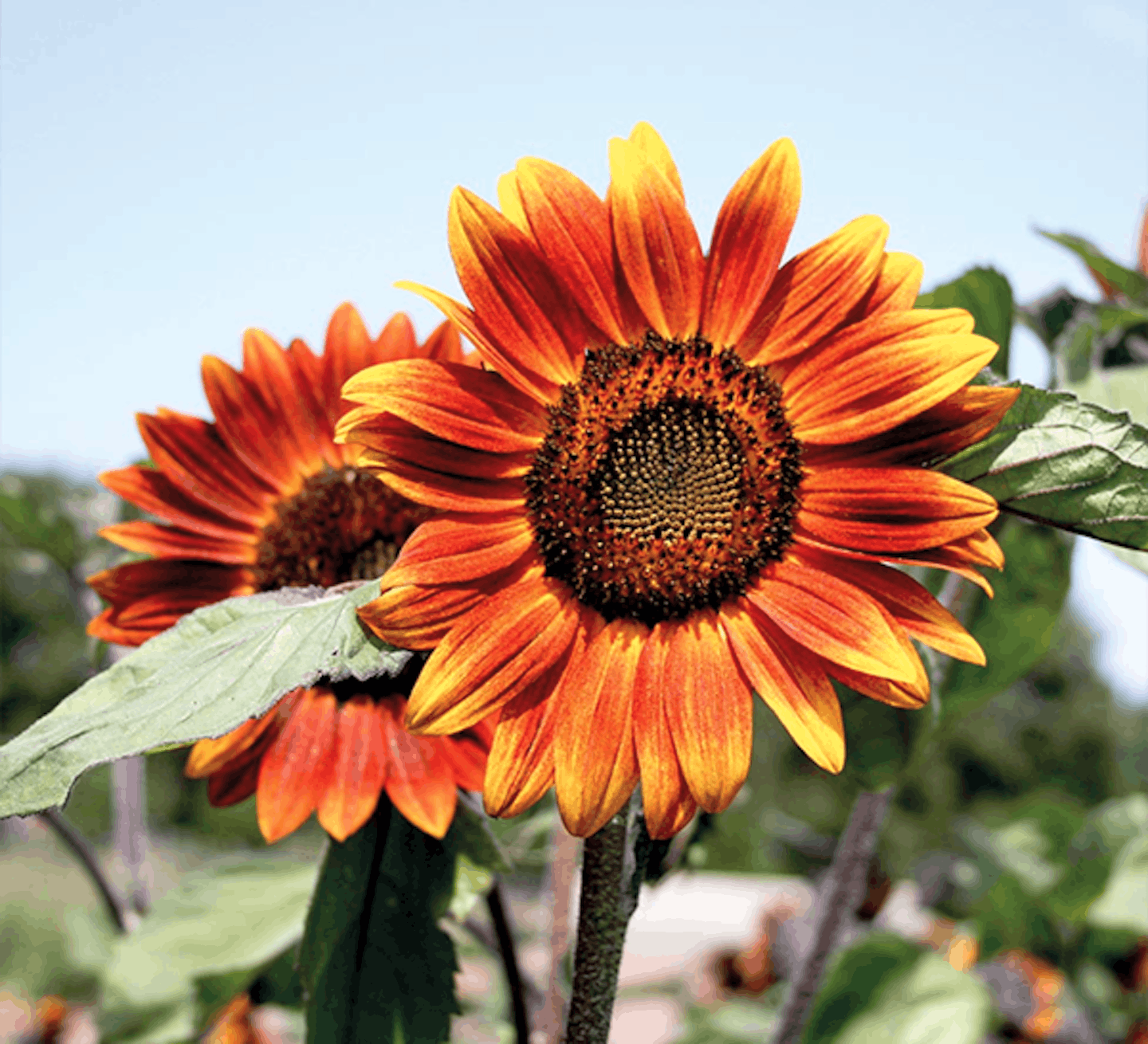
www.organiccatalogue.com
These seeds produce medium-sized flowers (in shades of red, pale red and dark red) with branched stems. Once grown, they are bee and butterfly friendly due to the bright, enticing colours. One reviewer said that these seeds from The Organic Gardening Catalogue are "a great organic seed selection, that's well packaged with clear and simple to follow instructions".
The plants can grow up to 2 metres high and you can expect to have flowers between August and September. Also, they are edible and are said to taste especially amazing if you can pick them early in the morning (before they've had too much sun).
Pros
- Free from chemicals such as pesticides and synthetic pesticides, making them better for the planet
- Petals are edible and you can add them to salads or use them as a garnish
Cons
- Reviewers who have purchased them regularly said that the number of seeds you get per pack has decreased over the years
| Sowing period: | Mid-February-June |
| Expected bloom time: | August-September |
When to plant sunflower seeds
You can sow sunflower seeds in spring - from April to May - either straight into the ground (that's been prepared, first) or individually in 10cm pots of peat-free, multi-purpose compost.
Keep them indoors or in a greenhouse (a windowsill is a handy spot) until all risk of frost has passed, normally early June. Then you can plant the seedlings in your garden and they should flower in summer or autumn.
How to plant sunflower seeds
The great thing about sunflowers is they work just as well in flower beds, or even containers - so you can grow sunflowers in even the smallest garden. Just make sure if you're growing them on a balcony that they won't grow too tall!
The RHS advice on planting sunflower seeds is:
1. If planting your seeds straight into your garden, make sure to pick a sunny spot. Remove any weeds and rake the soil so it's a thin crumbly texture. Plant your seeds at 10cm intervals - 12mm deep is a good depth.
2. Don’t forget to water the seeds gently once planted.
3. If your garden is a magnet for slugs and snails, cutting the top off a plastic bottle and placing it over your seedlings will help to protect them from bugs and frost alike.
4. As your sunflower begins to grow you may need to help support the stem using a bamboo cane.
Annual sunflowers bloom from summer into autumn. Depending on the variety, they can take 11-18 weeks to flower from seed sowing.
Arabella Horspool is a Commercial Content Writer for Yours at Bauer Media. She's a bookworm who is passionate about TV and film. She enjoys cooking and spending time with her many pets.
